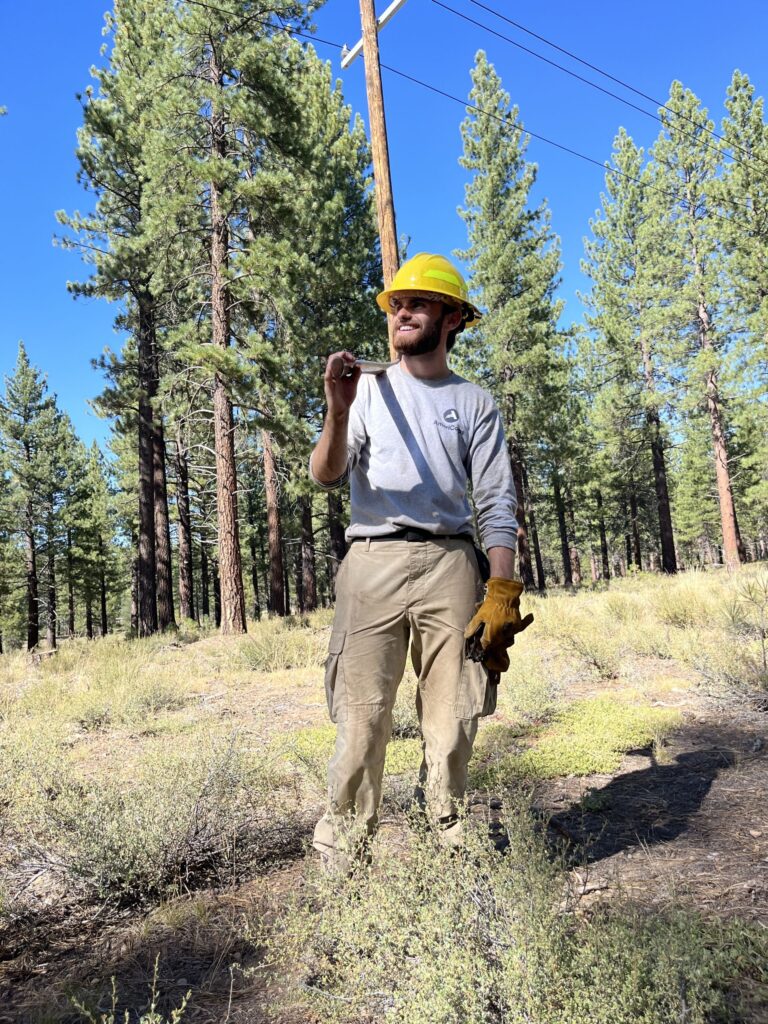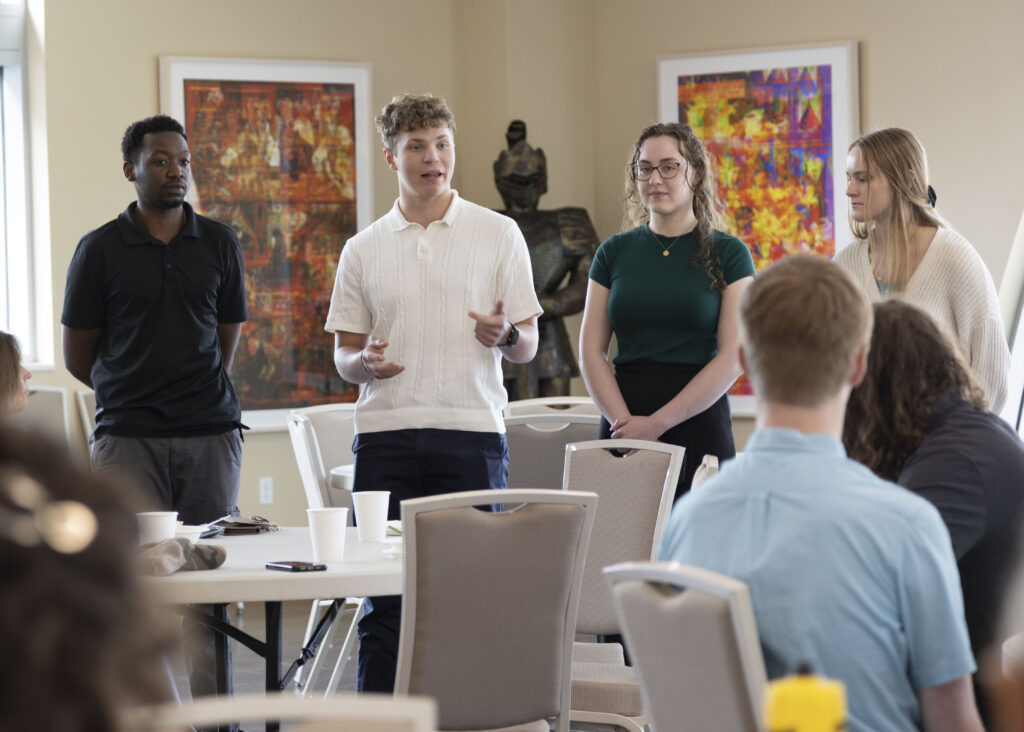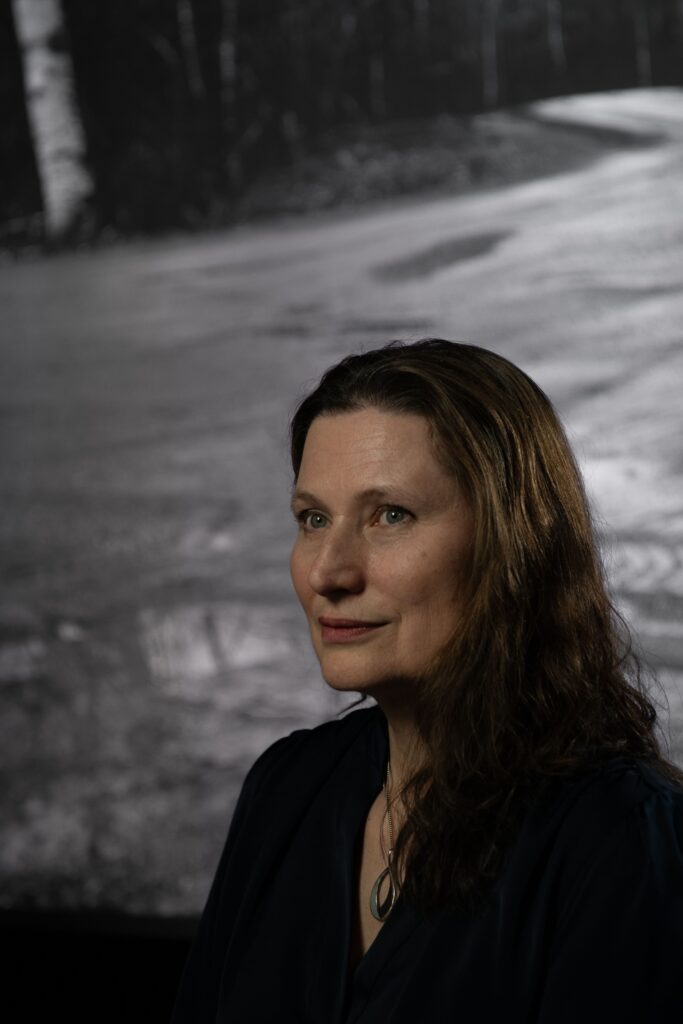Kuntz lecturer Guyette probes stories of Black Vermont
A local teacher, historian and author presents video talk titled "The Jagged Edges of Progress," offering new research and insight about a long-neglected topic

Elise Guyette
Elise Guyette, PhD, a Vermont teacher, historian and author of the groundbreaking book Discovering Black Vermont, recently delivered a video talk titled “The Jagged Edges of Progress” as the speaker for the 30th annual Norbert A. Kuntz memorial lecture series for Fall 2020 at Saint Michael’s College.
Professor Kathryn Dungy, History Department chair at Saint Michael’s, said the YouTube virtual presentation to watch Guyette’s Kuntz lecture was to go live at 4 p.m. on Thursday, November 19, and will be linked until December 20. Dungy and her History Department colleague George Dameron offer introductory remarks for the lecture video.
Watch the lecture starting at 4 p.m. on Nov. 19 here
In her introduction, Dungy says that Guyette’s book “treats a subject long neglected in Vermont history by focusing on a network of lives and accomplishments of early African-American citizens. It traces the story of three generations of free blacks trying to build a life and community in in Hinesburg, VT, in the years following statehood.”
With the speaker’s Kuntz Lecture topic “The Jagged Edges of Progress,” Dungy says, Guyette adds new research and insight on the multi-generational Vermont family as members migrate to South Carolina after the Civil War and become embroiled in Reconstruction politics.

Professor Kathryn Dungy
“A subtext for her story is a pattern of progress toward equality in this country constantly being followed by a violent backlash, which sends hopes plunging,” Dungy says. “Guyette contends we are still stuck in this historical pattern but can escape it if we acknowledge our history and work to change the pattern.” Originally published in 2010 by the University of Vermont and University Press of New England, the speaker’s book Discovering Black Vermont has been reprinted in 2020 by the Vermont Historical Society.
The Society website offers biographical background on the speaker: “Elise A. Guyette is a historian, author, and educator. Dr. Guyette is a former public school teacher and museum educator, who works as a consultant on ethnohistory, social sciences, and curriculum development for schools, theaters, television, and museums. She has a passion for discovering and teaching about stories that were lost because of the traditional telling of history from the point of view of the powerful. She co-founded the Burlington Edible History Tour, which tells the stories of various Burlington immigrant groups along with their food traditions and food businesses. Discovering Black Vermont was awarded the 2010 Richard O. Hathaway prize from the Vermont Historical Society for the year’s outstanding contribution to the field of Vermont history.”
The web page for Guyette’s book on Amazon shares still more of her interesting background: “When she was in 4th grade, Elise A. Guyette discovered that her people, French-Canadian, Lebanese, and Irish, were left out of her Vermont history text. When she began teaching, she was given the same little green textbook to teach her first students. It reminded her of the sting of being overlooked and, as a result, she has spent her adult life in pursuit of stories omitted from traditional histories. Guyette is … a part-time faculty member at the University of Vermont. She has taught history workshops for teachers throughout the United States, and in China and South Africa. Her publications include the textbook, Vermont: A Cultural Patchwork; a teacher’s guide for Making a Living: The Work Experiences of African Americans in New England; Gandhi in South Africa: A Perfect Miracle or Political Expediency; and Behind the White Veil: A History of Vermont’s Ethnic Groups in Many Cultures, One People: A Multicultural Handbook for Teachers. Her newest book tells the history of the United States in microcosm from 1790 to 1890, from the viewpoint of African American farmers in northern Vermont.”
For the YouTube video of the lecture, Professor Dameron also has introductory remarks, sharing history of the Kuntz Lecture and its namesake: “The Department of History began this lecture series in 1991 to honor the memory of a beloved colleague in the department: Norb Kuntz. At the time of his death at the age of 49 as the result of a sudden illness, Norb was professor of history, chair of the department, and a veteran of most if not all major faculty committees on campus.”

Professor George Dameron
Dameron said that Kuntz, a native of the upper Midwest, received his doctorate in American history from Michigan State University. “Arriving at Saint Michael’s College in 1969, he was a dedicated and gifted teacher, passionate about history. He was gregarious, affable, and ebullient with student and faculty alike, and his courses—especially his Civil War class—regularly drew 50 to 70 students,” Dameron said. “In his 18 years as chair of the department (longer than anyone since or ever again), he was programmatically far-sighted and wise. At the time of his death, he was beginning a major research project on medical care for soldiers during the Civil War.”
Along with another department colleague, Edward Pfeifer, Norbert Kuntz created the American Studies Program, Dameron said. “In 1987 he managed to convince the then-dean of the college to authorize a new tenure line in East Asian Studies. During his tenure, he also presided over the growth of the History Department faculty, expanding it by a third. Today there is only one remaining member of the department who was brought into the department by Norb Kuntz. Nevertheless, Norb’s presence is still felt on campus, especially among the many alumni who were his students in the late 1960s, 1970s, and 1980s. Two of his three children graduated from Saint Michael’s College, and both followed their father into the profession of teaching. His wife, Sue Kuntz, is an emerita member of the Psychology Department and a valued colleague and friend to many of us. And lastly, his presence at Saint Michael’s College is certainly evident here on campus through this annual lecture series.”
Watch the lecture once it premieres on Nov. 19 at 4 p.m., at this link.





